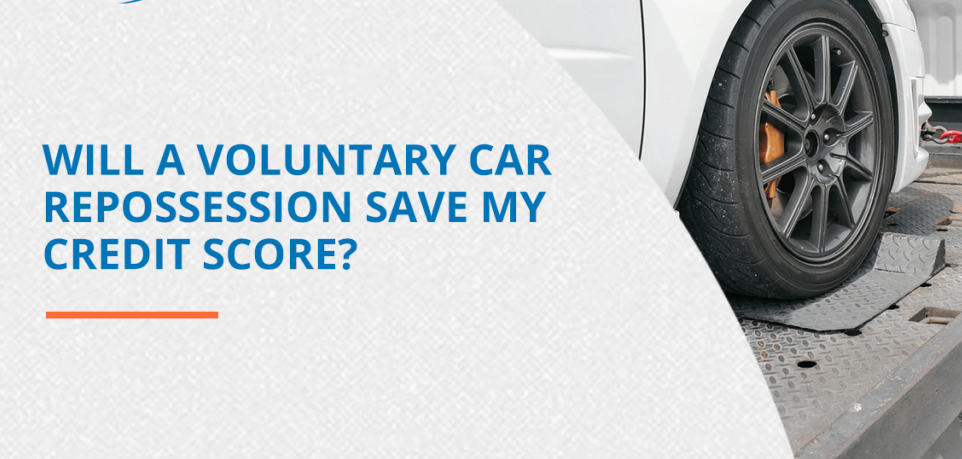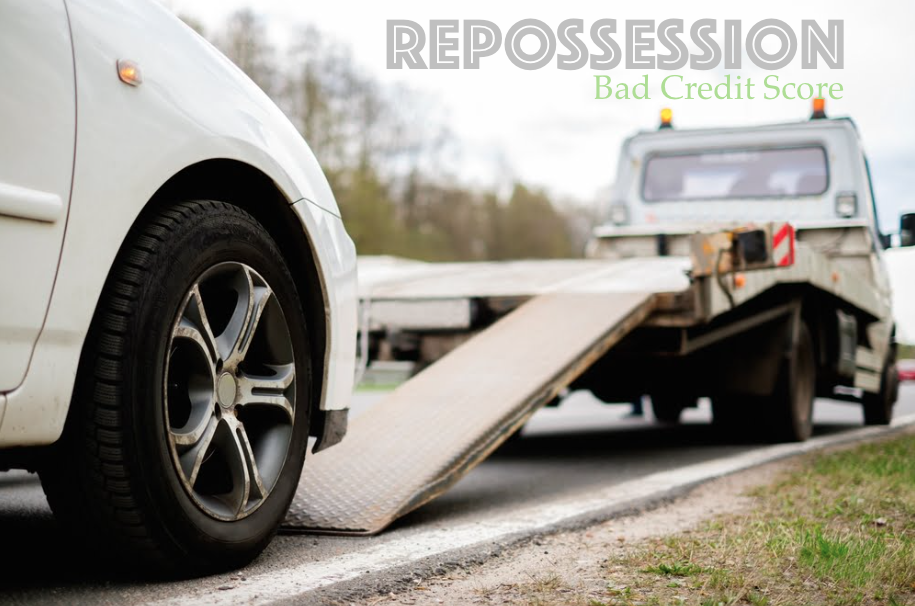Do you often wonder how long a car repossession stays on your credit report a resident of a particular state? Car repossession seriously hurts your credit score and impacts your ability to get credit in the future. While getting a car loan may seem like a good idea to buy your dream car, there’s a looming risk of repossession that hangs over you like a dark cloud. Anyways thats if you’re unable to payback.
Remember, with a car loan, the lender owns the car until you pay off the loan completely. While you can drive the car and make monthly payments, if you don’t pay on time, the lender can repossess it. Remember that it is bad for a car repossession credit report to show up in your account history.
If you don’t believe it, then you must read this; How Can Poor Credit Score Hurt My Social Security Benefits? It will give you an in-depth knowledge of what you are getting into.
What Is A Car Repossession?
If you fall behind on your car loan payments, the lender, who owns the vehicle, can repossess it. In some states, they can take your car without prior notice if you miss a payment.
However, in certain states, the law mandates that the lender must send you a notice before repossessing your car. This notice should contain information about the missed payment and give you a deadline to catch up on your loan before the lender can take your vehicle.
When your car is repossessed, it greatly damages your credit score and makes it difficult to obtain another loan. Repossession signifies that you’ve essentially defaulted on your car loan, raising multiple financial concerns that negatively impact your creditworthiness.
Types of Car Repossession
There are two types of vehicle repossession which are voluntary and involuntary.
1. Involuntary Repossession
If your car is repossessed involuntarily, it means the lender takes your vehicle because you’ve fallen behind on payments. The timing of repossession is unpredictable and can happen unexpectedly. However, be prepared to face significant fees if this occurs.
2. Voluntary Repossession
If you opt for voluntary repossession, it means you’ve informed your lender that you can no longer afford your car loan and have agreed to return the vehicle. This type of repossession has its benefits since you are in control and can handle the situation according to your preference. The advantage is that the fees involved are not as high as with involuntary repossession.

How A Car Repossession Works in My State
Typically, a car is repossessed when you are 90 days late on payments. Lenders can initiate the repossession process without needing a court order. In fact, missing a single payment can set the process in motion. The lender will notify you that they view your loan as being in default, but they won’t specify the exact timing and method of repossession.
Lenders often hire specialized third-party REPO companies, usually agencies, to handle vehicle repossession. These companies are skilled at their job, and your car may be taken from various locations such as the street outside your home, your workplace parking lot, or any other place where it is located.
How Long will a Car Repo Report Stay on Your Credit Score?
Repossession normally remains on your credit report for a duration of seven (7) years. However, you can still improve your credit despite having a repossession on your record. This can be done by paying off any outstanding debts related to your car loan, settling credit card bills, and being cautious about accumulating additional credit card debt.
If you’re at risk of car repossession due to defaulting on your loan, it’s crucial to reach out to a non-profit credit counselor right away. Whether you’re worried about the possibility of repossession or it’s already in progress, seeking help from a credit counselor is highly recommended.
How To Get A Repossessed Car Back Successfully
In some states here in the US and Canada, if your car is repossessed, you may have the option to “reinstate” your loan. This involves paying the overdue amount and the repossession expenses incurred by your lender.
If you start making those payments, you can fully pay off the loan and regain possession of your car. However, it’s important to note that the repossession will still remain on your credit report. Nevertheless, this process allows you to retrieve your vehicle and bring your loan payments back on track.
According to info from some states, there is an option to repurchase the vehicle by paying the full amount you owe, including the remaining loan balance. However, if this is not feasible for you, another option is to wait for the lender to initiate an auction for your vehicle and then purchase it at that time.
Related Questions from people in my mail requesting Help:
- How to fix credit after a car repossession
- Can i buy a house with a car repossession on my credit
- When does a repossession show on your credit
- How to remove a paid repossession from your credit report
- Can i get a car loan with a repossession on my credit?
- How long does the repossession process take
- How long does a voluntary repo stay on your credit
- What does paid repossession mean on credit report
Are Repossession and Voluntary Surrender Listed on a Credit Report?
Many people usually as if Repossession and Voluntary Surrender Appear on a Credit Report? Derogatory accounts, such as missed payments, charged-off accounts, or accounts sold to collections, stay on your credit report for seven years.
However, paying off a derogatory account can positively impact your credit by demonstrating a “paid” status on your credit report. This can contribute to the improvement of your overall credit standing.

How long does a derogatory closure of an account’s auto loan affect your credit scores?
Question: For how long does a negative account closure, specifically related to an auto loan, impact credit scores of a person? Can I repair my credit score after my car repossession shows up on my credit report?
When an auto loan account is closed in a derogatory manner, it often means that the vehicle was repossessed or voluntarily surrendered. It can also include accounts that were charged off as a loss or sold to collections. These types of closures have an impact on your credit scores as long as they appear on your credit report.
The presence of a derogatory account can affect how credit scoring models calculate your credit scores. However, the impact lessens over time, especially as the closure becomes further in the past. Lenders consider these factors when making lending decisions.
If the account was closed due to charge-off, repossession, or voluntary surrender, it will remain on your credit report for a duration of seven years from the original missed payment that led to the derogatory status. This date is known as the original delinquency date. After seven years, the account will be automatically removed from your credit report, and it will no longer impact your credit scores.
What happens if you still have an outstanding balance on your car loan?
When your vehicle is repossessed or voluntarily surrendered, the lender will typically sell it to recover as much of the outstanding balance as possible. If there is still a remaining balance after the sale and you don’t settle it, it might be handed over to a collection agency.
In such cases, the collection account may appear on your credit report alongside the original account. Collection accounts are considered an extension of the original account and will also be removed from your credit report seven years from the original delinquency date that led to the vehicle being surrendered or repossessed.
What if You Pay Off a Derogatory Account, Will it Help Your Credit Score?
Settling a derogatory account, such as one that indicates repossession, foreclosure, or charge off, can have a positive impact on your credit. When you pay off the debt, the account will be updated on your credit report to reflect a “paid” status, unless it has already been sold to a collection company.
Read Also: How Long Does a Car Repo Affect Your Credit Score?
In the case of a sold account, the original account will still show the negative payment history but will indicate that it has been transferred or sold to another company. The payment would need to be made to the new debt owner. If the collection account appears separately on your report, it will be updated to reflect a “paid” status.
While paying off a debt does not automatically remove it from your credit history, a paid debt may contribute to a quicker recovery of your credit over time. Lenders may also view a paid account more favorably than an unpaid one, increasing your chances of qualifying for new credit sooner. For example, when applying for a mortgage, most lenders require that any past-due accounts be paid off or settled before considering your loan approval.
If the account was sold to collections, paying off the collection account can potentially result in an immediate improvement to your credit scores. This is because many newer credit scoring models exclude paid collection accounts from score calculations.
Related Posts
- Cash Back Credit Cards: Types, Comparison, Rewards, Pros and Cons
- 10 Credit Card Companies with Sign up Bonus and No Annual Fee
How to Repair Your Credit History After Car Repossession Appears on Your Credit Report
If you have a derogatory account on your credit history and want to start rebuilding your credit, there are several steps you can take. First and foremost, make sure to settle any remaining balance after the vehicle sale. Additionally, consider the following methods to begin enhancing your credit scores:
The guide below is the steps you must follow if you what to know how to repair a bad credit history.
To start rebuilding your credit, take the following steps:
1. Bring other outstanding accounts up to date:
If you have any past-due accounts on your credit report, prioritize bringing them current as soon as possible. This is one of the Best Strategies to Improve Your Credit Score from 500 to 800 if you ask me. And sincerely, thats the truth.
2. Ensure on-time Payments:
Paying your bills on time is crucial for improving your credit scores. Make all future payments promptly to establish a positive payment history. Simply put, just pay your bills on time. Consistently make timely payments for all your financial obligations, including credit cards, loans, and utilities. Paying on time helps establish a positive payment history.
3. Reduce Credit Card Balances:
Your credit card usage rate, which compares your balances to your credit limits, significantly affects your credit scores. Lowering your balances and keeping your utilization rate low can be beneficial. If you are able to lower your credit balance, be reducing your credit limits, it will help you. If your use your credit too much, it will can negatively impact your credit scores. These are the 5 Steps to Lower Your Credit Card Interest Rate for better understanding.
4. Check your credit score:
Obtain your free credit score from Experian and review the included risk factors. These factors highlight specific changes you can make to improve your credit history and increase your scores. If you monitor your credit report its a great start. A regular Credit Score Check, Reports and Highest Range in Your Finance in important.
Therefore, Regularly checking your credit report for any errors or inaccuracies will keep you in the know. Make sure you dispute any incorrect information and ensure that your credit report reflects your current financial situation. Checking your FICO score is also advised. This link has the best strategy on How to Get my Credit Score from 500 to 700 and Above.
5. Try to Build a Positive Credit History:
If you don’t have much credit history, consider opening a new credit card or obtaining a small loan. Use them responsibly and make regular payments to demonstrate your creditworthiness. Truly, it’s not an easy take but the journey of a thousand mile begins with a step. Start small and grow your balance over time.
6. Make use of Your Credit Responsibly:
Avoid taking on excessive debt and be mindful of your credit utilization. Make thoughtful and calculated decisions when applying for new credit.
7. Seek professional assistance if needed:
If you’re overwhelmed or uncertain about how to improve your credit, consider consulting with a non-profit credit counseling agency for guidance and support. I have written a guide on How to Negotiate Debt Settlement with your Credit Card Company for soft landing.
8. Utilize Any approved Card Company Boost:
Take advantage of any boost offered by your credit card company. Normally, its a free service that allows you to include on-time payments for utilities, cellphone bills, and streaming services in your credit history. This can instantly boost your credit scores.
Conclusion
Repossession remains on your credit report for a period of seven years. However, you can still take steps to improve your credit even with the repossession on record. Car repossession on your credit report is not the end of your life.
The good thing is that in some states, you have the option to “reinstate” your loan, which involves paying the overdue amount and the lender’s repossession expenses. While this doesn’t remove the repossession from your credit report, it can help strengthen your credit score and potentially allow you to regain possession of your car.
Don’t Miss this Recommendations
- Can you get Closed Account Removed from Credit Report?
- How does Cash Back Credit Card Work for Account Holders?
- How to Consolidate Credit Card Debt without Hurting your Credit
- How to do Credit Card Balance Transfer to Another Issuer with No Fee







